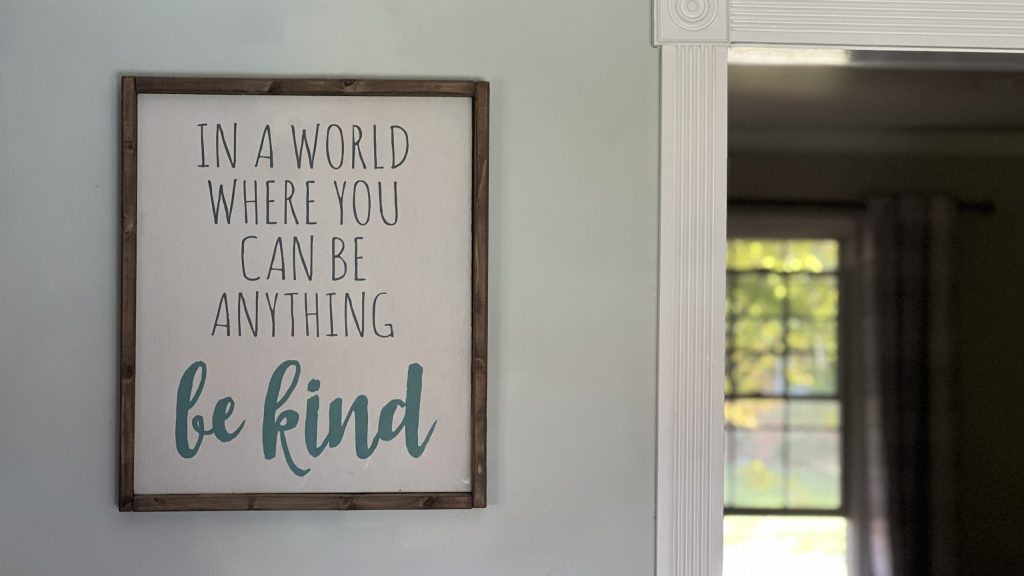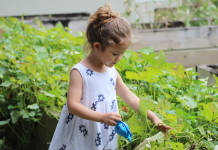I’ve been the target of bullies. I wouldn’t wish being made to feel insignificant and alone on my worst enemies. What it taught me though is that I believe that the sooner we teach our kids to be kind and talk about bullying, the better positioned they will be when they encounter a bully. Note: I said when, not if.
Unfortunately, part of growing up means testing boundaries and navigating uncomfortable social situations that will tempt our children to do things they otherwise wouldn’t. The better prepared they are to lean into kindness, the more confident they will be when dealing with a bully, and the more likely they are to not become one themselves.
 Teach Kindness
Teach Kindness
Before our kids even learn to talk, they learn that actions can hurt. Biting and pushing come before learning to say please and thank you. My husband and I have made a concerted effort to correct behaviors that can hurt, and guide our children towards actions and words that don’t. We’ve found that those small reminders over time have already started to form healthy preventive patterns in our five and three-year-old. We’ve found that even small daily reminders help – things such as:
- Talking about and through emotions – not just theirs, but ours as parents and those of people around us.
- Encouraging healthy coping behaviors that teach self-kindness, as well as kindness to those around them.
- Explaining how their actions impact others – not from a point of shaming, but from a perspective of empathy.
- Reframing the questions they ask to be less accusatory or demeaning, and more inclusive and considerate.
Still, I anticipate that bullying isn’t a question of if for my children, but when. Even before kindergarten started this fall, I already saw instances of this. When those exclusionary or hurtful behaviors begin, my mama-bear-mode kicks in. But so too does my mental plan for how we’re going to talk about what is happening and how to react.
Be the Safe Space
First and foremost, when your child has been bullied or witnessed bullying, your child is likely to feel hurt, afraid, embarrassed, or alone. Your number one job in that moment is to cut through the big emotions and offer them safety. Don’t immediately push them to talk, dismiss their emotions, or take action. Just be their safe space and work to bring them back to a place of calm so they can talk with you. Once the tears have subsided and their breathing has slowed, only then can you start to guide them to talk:
- Listen openly and calmly. They need to be heard and acknowledged, not interrogated.
- Validate their feelings and make sure they know how proud you are that they came to you.
- Make a plan of action together with them to make sure they’re comfortable (talking to a teacher, the school, or another parent).
- Finally, don’t make them be the one to always bring up any issues. Check back and in with them regularly about any issues you’ve picked up on.
There is so much more that goes into bullying than simply talking about it (though talking about it is vitally important). For instance, I believe that hurt people hurt people. As members of society, not just parents, we have a responsibility to help raise the humans around us who need help. So for our children, and the children around us, start the conversation about kindness early at every opportunity you have. Give books about kindness and anti-bullying. Be the safe space for your kids and the kids throughout your life. Lead and display what it means to be empathetic. Let’s build a more inclusive, empathic future for our children together.










